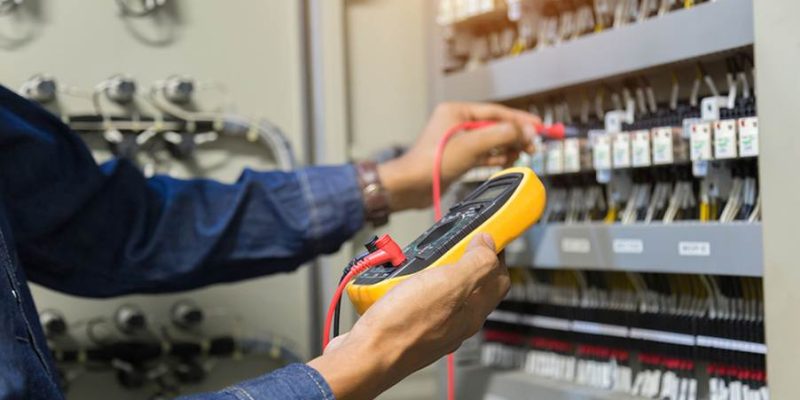Power failure in Singapore causes disruption across homes, offices, and commercial facilities. Despite the country’s strong electrical infrastructure, outages still occur. Understanding what leads to these failures and how to address them helps reduce downtime and safety hazards. Engaging an experienced electrical contractor in Singapore remains critical in applying long-term solutions.
Common Causes of Power Failure in Singapore
Power failure in Singapore usually stems from system faults, infrastructure wear, or overloading. Ageing wiring in older properties remains a primary cause. Insulation deteriorates, wires corrode, and connections weaken, leading to short circuits. Buildings constructed decades ago often lack the capacity to handle today’s power-hungry appliances.
Overloading from the simultaneous use of high-wattage equipment contributes to circuit trips. Air-conditioning systems, water heaters, and kitchen devices pull high current. Without proper load balancing, the risk of power trips increases, especially in residential blocks and office buildings.
Poor installation or DIY fixes by unlicensed individuals create unsafe wiring. Misconnected circuits or exposed wires risk overheating and fire. Engaging a certified electrical contractor in Singapore ensures proper layout, testing, and adherence to safety codes.
External conditions, such as lightning strikes or grid faults, can also trigger local outages. While national infrastructure remains resilient, severe weather or nearby works may interrupt supply. Construction near underground cables sometimes damages key lines, prompting emergency shutdowns.
Circuit breaker faults also play a role. A faulty breaker fails to protect the system, allowing power surges or irregular flow. Regular inspection ensures that distribution boards respond correctly to electrical faults.
Role of an Electrical Contractor in Preventing Recurrence
Hiring a licensed electrical contractor in Singapore helps prevent recurring power issues. Contractors begin by diagnosing the exact cause through load testing, thermal imaging, and inspection. This allows accurate identification of defective wiring, overloaded sockets, or ageing circuits.
Contractors then restructure the system layout. Redistributing load across different circuits reduces pressure on main breakers. Dedicated lines for heavy-use appliances such as ovens, fridges, or server racks maintain balance. This helps prevent circuit overload and tripping.
Rewiring aged systems with modern cabling provides stronger insulation and better conductivity. It also complies with Singapore’s latest electrical standards, reducing safety risks. Modern wires support larger currents without overheating, improving efficiency.
Upgrading the main electrical panel ensures higher capacity. Most older buildings operate with limited amperage, unsuitable for modern demands. A contractor fits a larger panel, allowing more circuits and ensuring smoother load distribution.
The installation of Uninterruptible Power Supply (UPS) systems also protects sensitive electronics from sudden blackouts. Hospitals, offices, and industrial units benefit from continuous power during outages. Contractors advise on the correct UPS size based on the critical load.
Routine preventive maintenance keeps electrical systems in top condition. Contractors perform scheduled checks on switchboards, sockets, and circuit breakers. They tighten loose terminals, test earth faults, and replace worn parts before issues arise.
Long-Term Solutions for Minimising Power Outages
Addressing power failure in Singapore requires long-term planning beyond reactive fixes. Property owners must invest in durable infrastructure and periodic assessments. Proactive steps help lower risk, improve efficiency, and extend system lifespan.
Smart load management tools help monitor energy use in real-time. Smart meters and circuit monitors alert users of excessive draw, allowing quick response before tripping occurs. Contractors can integrate these systems to support energy monitoring goals.
Switching to energy-efficient appliances reduces the load on the system. Devices with energy-saving certification consume less power, easing circuit stress. Property managers should encourage users to switch off high-consumption devices when not in use.
Backup generators act as supplementary sources during extended outages. Large facilities like malls, warehouses, and data centres benefit from automatic switchovers. These setups require professional installation and testing by experienced electrical contractors in Singapore.
RCD (Residual Current Device) installation remains mandatory in newer properties. RCDs detect current leakage and instantly shut down the affected circuit. Contractors recommend installing RCDs in older homes and commercial units lacking this layer of protection.
Educating residents or users about safe power practices also matters. Overloading adaptors, improper extension cord use, and plugging in faulty appliances strain the system. Conducting awareness sessions helps reduce careless usage.
For new developments, involving electrical experts in the planning stages helps future-proof the layout. Factoring in higher consumption projections and redundant wiring paths ensures flexibility for later upgrades. This forward-thinking approach saves cost and avoids disruptions later on.
Conclusion
Power failure in Singapore, while less frequent compared to other regions, still poses safety, productivity, and convenience risks. Outdated wiring, overloaded circuits, and poor maintenance often lie at the core of these disruptions. Addressing these causes with effective solutions starts with engaging a professional electrical contractor in Singapore.
Reliable contractors not only resolve current faults but also implement measures that protect systems long-term. From rewiring and load balancing to integrating smart energy tools, professional input keeps the lights on and operations running.
Experiencing frequent electrical issues? Contact 81 Electrical for expert help from a licensed electrical contractor in Singapore. Let trained specialists handle repairs, upgrades, and preventive maintenance to keep your property safe and blackout-free.

Comments